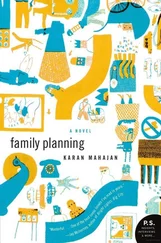Azamgarh had had a flour mill once, the main source of employment, but it had closed down the year Ayub was born.
A guard at the gate of the fancy house in South Ex let him in. The house wasn’t big; it was palatial. He didn’t feel so bad anymore, putting these people through trouble.
________
After Ayub had formally met Mr. and Mrs. Ahmed, crossing his arms and bowing to them in a manner that made Mansoor embarrassed, the two friends ate lunch.
Ayub, trying his best to act normal, asked through the steaming dishes, the heat rising up and sitting in a haze over the table, his eyes watering from the spices, about Peace For All: How was it doing?
“Fine,” Mansoor said, chewing down the rajma. “There was more focus and zest when you and Tara were running it.” Actually, ever since Tara and Ayub had left, the group had devolved into the languorous gossip session it had always been destined to be, with toothy, smiling members with adolescent mustaches from Jamia and JNU meeting in Baristas and Café Coffee Days scattered all over the city, backslapping and regaling one another with stories and theories about the “real India.” But anyway, Mansoor had other things on his mind. Since Ayub had vanished Mansoor had been in touch with Tara over e-mail under the guise of asking for advice about programs in the U.S. “If my visa comes through, that is,” he’d written. “One of my friends who gained admission to Wharton was denied a visa because his birthday is the same as a terrorist’s. And he’s a Hindu!” She had responded to this as he’d hoped: bitterly, in lowercase. He was quite in love with her.
Mansoor asked Ayub if he had heard from Tara, holding his breath.
“No. But what happened between us was amicable. Did I tell you I’m engaged?”
“Wow, yaar,” Mansoor said. “And who’s the girl? Who knew you were such a chhupa rustam?” He was somewhat disoriented at these rapid changes in his friend’s life.
“Her name is Zahara,” Ayub said. “She’s from my native place. Her parents know my parents. They’re also syeds.” He took a heaping of rice from the casserole. “I used to be opposed to such matches, but when the background is the same that makes all the difference.”
“Where did she do her studies?” Mansoor asked, bringing his palms together in a nervous crisscross of fingers on the table.
“She has an MA in social service from BHU,” Ayub said, taking quick bites between words. “And she did a BSc in biology through correspondence. But the parents are very liberal people. I like them.”
“Hmm. Sounds like moving back was quite good for you, then,” Mansoor said, his heart freeing up: he could contact Tara without shame now! But he also felt bad for his friend. “One day I’d like to visit — I’ve hardly seen the rest of India. Maybe for your wedding.”
“Of course,” Ayub smiled tiredly, which Mansoor interpreted as a sign.
“I’ll show you the den where you’ll be sleeping.” Mansoor said.
________
The “den,” air-conditioning, marble floors, servants — these were all pleasures Ayub had forgotten after those months of hardship in the hot infertile fields of Azamgarh and the forests of Hubli. He marveled at the room as he set down his bags and Mansoor switched on the light and fan and left him to unpack. So this might be the last room I sleep in, that I’ll see, he thought. What a pity. What a pity to have to do the heavy work of revolution while such rooms exist —to be out changing the country while people luxuriate, unaware, in these marble oases. He had a weird sensation that he was in a tomb.
He had told Mansoor that he’d come — astonishingly — to shop for the wedding and to find a job, and he began to go out during the day for “interviews” and “discussions.” He had not been happy working for Eveready, he told Mansoor; he felt the job of area salesman was beneath him — what he wanted was a job that made money and also did good for the world.
“I understand,” Mansoor said. “That’s hard to find.”
They were sitting on the hot veranda of the house.
“You know my friends who run the Islamic VC fund?” Ayub said. “I may talk to them.”
“You have experience in that area?” Mansoor asked.
“Don’t mind my saying this — but that’s the problem. People value experience over brains and ideas.”
“I didn’t mean it that way,” Mansoor said.
“I know you didn’t,” Ayub said. “I’m just revealing an attitude. How about you? When are you returning to college?”
“Actually, I wanted to tell you,” Mansoor said, and he finally admitted the whole saga with the family’s property deal, the tricks played by the other side in court, how they were using psychological warfare to weaken his parents. But then he stopped. “The point is that it has increased my parents’ stress a lot. Maybe they were glad for this reason that you, a guest, were coming: we can at least feel and behave a little normal. So,” he said, in conclusion. “As you can see, this is a bad time for the family — therefore it isn’t right for me to go to the U.S.” This long story! And still he hadn’t been able to admit that the financial stress was the reason he couldn’t go. The roots of shame run deep.
Ayub considered Mansoor and his story with a distracted air. Basic interactions had become hard for him. Language, that fundamental unit of life, which had once escaped his mouth like helpless bubbles from creatures of the sea, which had filled his mouth when he couldn’t afford food, which had always seemed as natural to him as another limb, like the instinctive act of putting one foot in front of the other — language had deserted him. All his fluency was gone. And without this fluency to oil his interactions with people, everyone seemed distant, alien, blocky, impossibly trapped in the amber of their own emotions. Finally, he said, with a hard blink and a gulp, “That’s very tough, boss.”
“Yaah,” Mansoor said. “But God will show a way out.” Suddenly embarrassed, he asked, “How was returning home for you in other respects?”
Ayub was disarmed by the question. “It was good. My father is trying to sell organic vegetables. He’s ahead of his time, but it was good to spend time with him. It humbles you, to be with your parents, to realize you’re not as original as you think. I had always thought I was being a big renegade by being an activist, but it’s probably a bigger rebellion to sell organic goods in Azamgarh. Now he wants to provide updates to farmers through his mobile.” He smiled. “The only problem is that both him and my mother are becoming blind. They both had diabetes but they got into this naturopathy business and didn’t do any of the things the doctors told them. As I say this I realize their attitude isn’t so different from mine. I too probably would have done something like that, with my suspicion of science. I guess what I’m saying is that I’m my parents’ child.”
“What about your brothers?” Mansoor asked.
“They’re both in Dubai. They send money to my parents but they hardly come. I don’t blame them. When you grow up in Azamgarh, all you want to do is escape it. People are confused why I came back.”
Why did you? Mansoor wanted to ask, but said nothing.
Ayub put a hand on his forehead. “I feel feverish.” But what he meant to say was, How did it happen? How did my gift for speech suddenly return?
________
Mansoor tried to bring Ayub along to the Peace For All meetings, but Ayub refused. Mansoor thought, “He’ll come around; it’s God’s will.” In the meantime, the two men prayed together, with Mansoor happily leading the way.
________
Читать дальше












